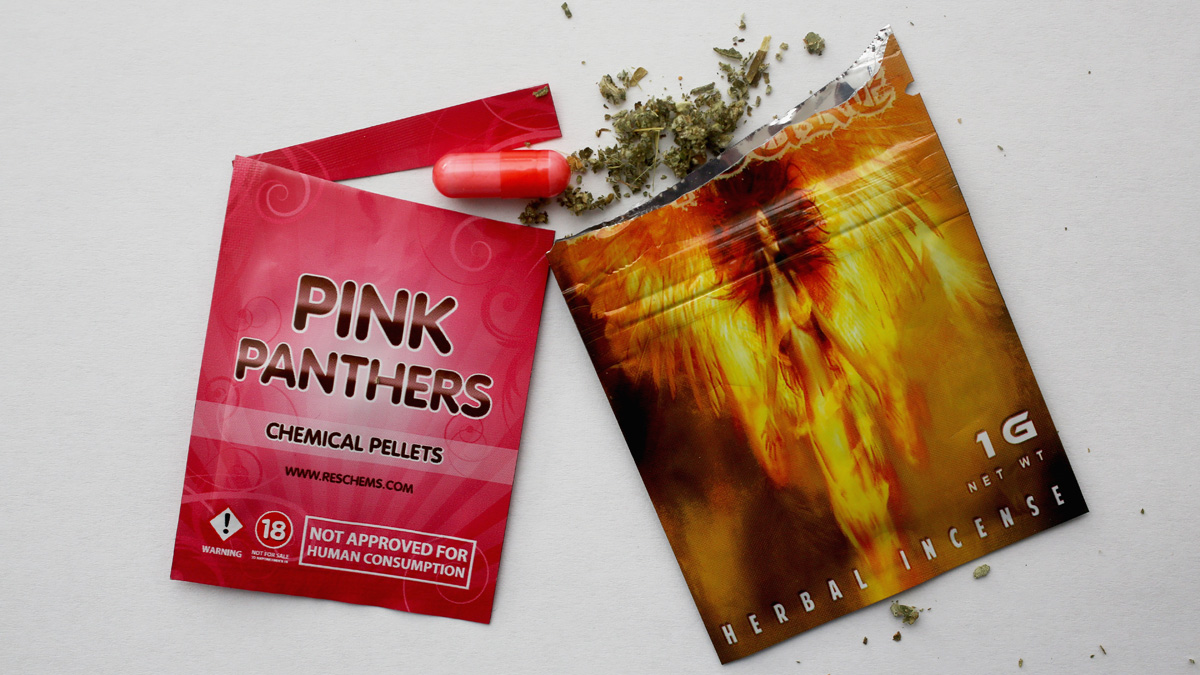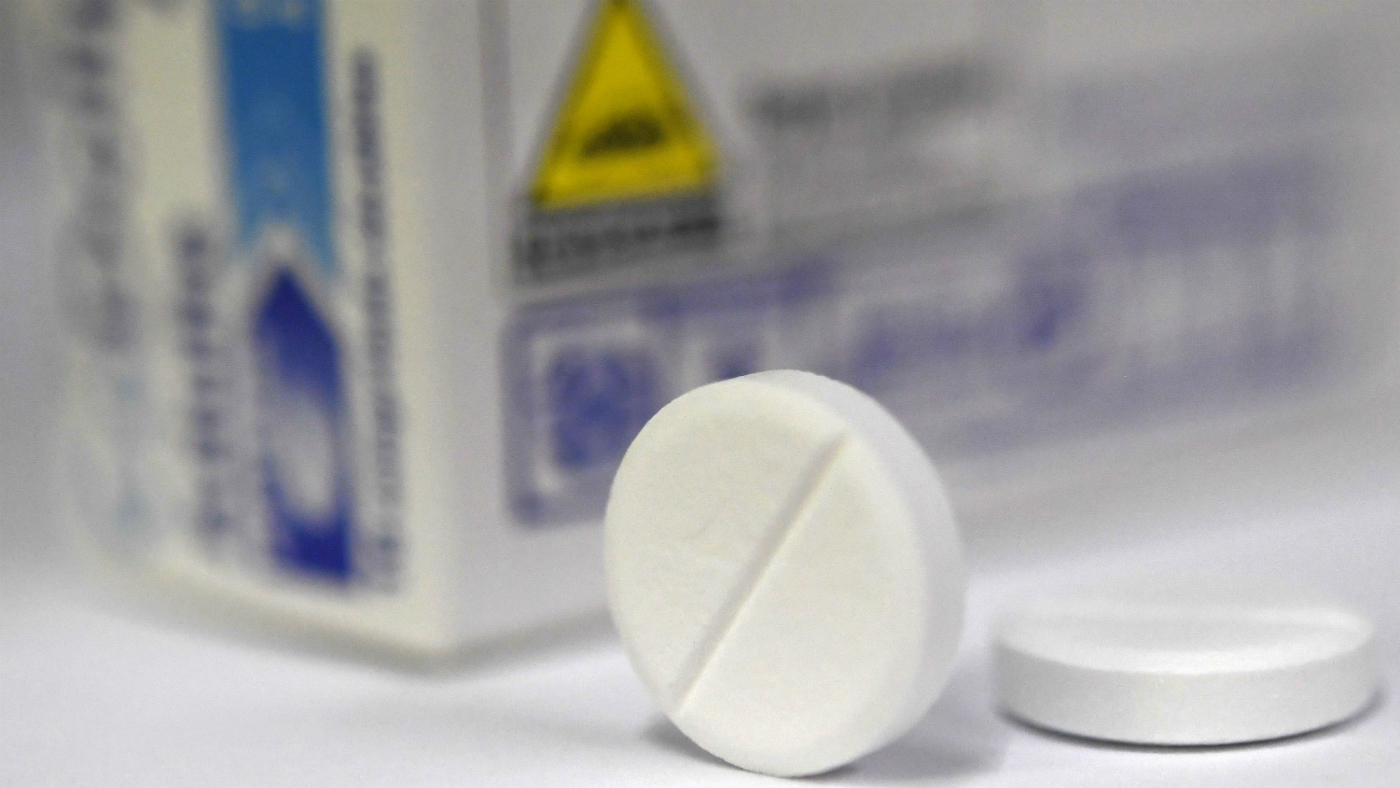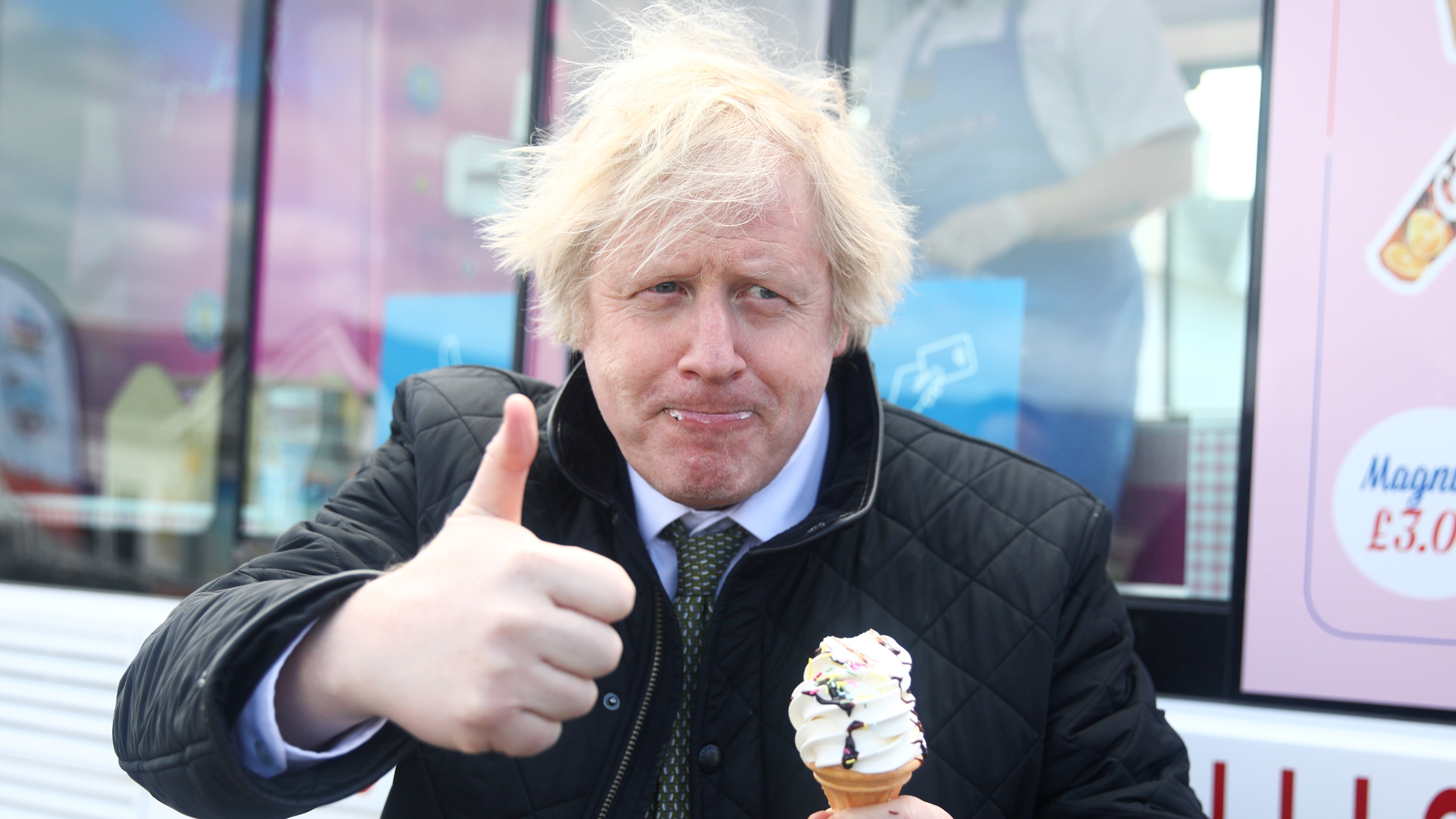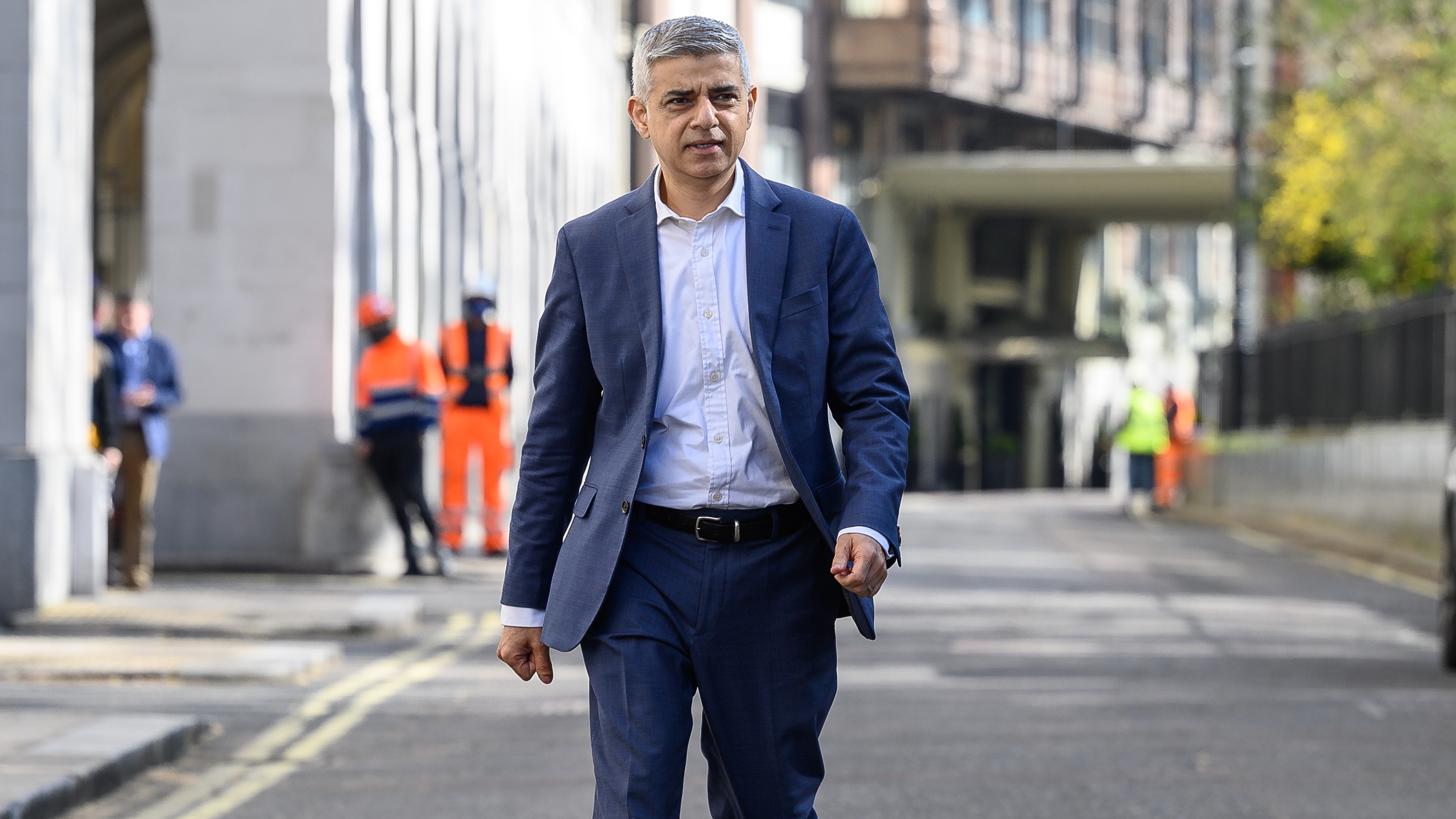What are legal highs and has the government ban worked?
New report suggests psychoactive substances have now been driven underground

A free daily email with the biggest news stories of the day – and the best features from TheWeek.com
You are now subscribed
Your newsletter sign-up was successful
The government’s ban on so-called legal highs has driven their sale underground, a new report into the impact of the 2016 change in legislation has found.
The Psychoactive Substances Act (PSA) led to a “considerable reduction” in use of the drugs, but street dealers are now the main source of supply with vulnerable users switching back to harder alternatives, found the Home Office review.
What are legal highs?
The Week
Escape your echo chamber. Get the facts behind the news, plus analysis from multiple perspectives.

Sign up for The Week's Free Newsletters
From our morning news briefing to a weekly Good News Newsletter, get the best of The Week delivered directly to your inbox.
From our morning news briefing to a weekly Good News Newsletter, get the best of The Week delivered directly to your inbox.
Legal highs are a term used to describe substances that mimic the effects of illegal drugs, such as cocaine, ecstasy and speed, but have been tweaked at a molecular level to evade previous anti-drug laws. As such, they did not fall under the Misuse of Drugs Act (1971) and could be sold openly on websites and high streets across the UK.
They were not allowed to be sold for human consumption if unsafe, although a legal loophole meant they could be sold under the guise of something else, such as plant food or bath salts. Buyers were often unaware that one in five legal highs contained an illegal substance, making the nickname somewhat misleading.
What are their dangers?
Most novel psychoactive substances have not been tested for human consumption so reactions are unpredictable. Risks, which can increase if the drug is mixed with alcohol or other substances, include seizures, mental health issues, brain damage, heart problems and death.
A free daily email with the biggest news stories of the day – and the best features from TheWeek.com
How has the law changed?
Previously, legislation took a substance-by-substance approach. Hundreds of individual drugs, such as mephedrone (meow meow), BZP and GBL, were outlawed, but new versions were often created and sold just as fast as the government could ban them.
The 2016 Psychoactive Substances Act applies to “any substance intended for human consumption that is capable of producing a psychoactive effect” – effectively a blanket ban on all legal highs.
It made it an offence to manufacture, import, supply or distribute – but not possess – any substance deemed to be psychoactive, with the exception of alcohol, tobacco and certain foods and medicines.
Anyone found producing or supplying the psychoactive substances now faces up to seven years in prison. The new legislation gives police the power to seize and destroy the drugs and carry out searches of people, premises and vehicles.
“Basically, the government is determined to stop people using any substance that causes an alteration in their state of consciousness – unless it is a large gin and tonic or a fat Cuban cigar, of course,” says the BBC’s home affairs editor, Mark Easton.
Has it been a success?
Yes: The latest Home Office review concludes that most of the aims of the act “appear to have been achieved, with the open sale of NPS largely eliminated, a significant fall in NPS use in the general population, and a reduction in health-related harms which is likely to have been achieved through reduced usage”.
Since the law came into effect 31 outlets, known as head shops, have closed, with a further 332 no longer stocking the drugs. Police recorded 492 arrests in the first six months after the law came into force and there were 1,523 seizures of NPS in 2017/18.
According to the Office for National Statistics, there were 61 deaths from new psychoactive substances in 2017, around half of the 123 deaths in 2016.
No: Martin Powell, from the Transform Drug Policy Foundation, warns that “little positive” has been achieved since the ban.
“This blanket ban was supposed to cure the UK’s ‘legal high’ problem, including Spice,” he said. “But as experts warned before the new law was implemented, beyond the cosmetic success of ending legal sales in head shops, little positive has been achieved. And in many respects the situation has deteriorated.”
With prices skyrocketing and the sale of legal highs forced underground and on to the dark web, the Home Office says the ban might have led to the most vulnerable users switching back to drugs such as cannabis and cocaine.
Another report published in late 2016 from the drug information service DrugWise said the continuing use of drugs such as spice among “vulnerable street communities”, including rising numbers of rough sleepers, is a cause for concern, reports The Guardian.
Legal high use also remains widespread in UK prisons “and in some cases had increased”, says The Daily Telegraph, which offers a mixed assessment of the law’s impact.
The Home Office also warns the ban has seen drugs become more potent, with new strands continuing to be produced.
“This suggests the ban has not yet brought an end to the ‘game of cat and mouse’ between law enforcement agencies and those producing NPS,” says the BBC.
-
 Local elections 2026: where are they and who is expected to win?
Local elections 2026: where are they and who is expected to win?The Explainer Labour is braced for heavy losses and U-turn on postponing some council elections hasn’t helped the party’s prospects
-
 6 of the world’s most accessible destinations
6 of the world’s most accessible destinationsThe Week Recommends Experience all of Berlin, Singapore and Sydney
-
 How the FCC’s ‘equal time’ rule works
How the FCC’s ‘equal time’ rule worksIn the Spotlight The law is at the heart of the Colbert-CBS conflict
-
 4 Americans kidnapped in Mexico by armed gunmen, 2 killed, FBI says
4 Americans kidnapped in Mexico by armed gunmen, 2 killed, FBI saysSpeed Read
-
 The Week Unwrapped: Seeing stars, prescribing comedy and decriminalising drugs
The Week Unwrapped: Seeing stars, prescribing comedy and decriminalising drugspodcast What will the James Webb Telescope accomplish? Why is the NHS sending people to comedy courses? And are drugs laws about to change in the British capital?
-
 ‘France wouldn’t be France without strikes, protests and police baton charges’
‘France wouldn’t be France without strikes, protests and police baton charges’Instant Opinion Your digest of analysis and commentary from the British and international press
-
 Why codeine deaths have reached a record high
Why codeine deaths have reached a record highfeature Rise of the ‘dark web’ and demography of addicts may explain surge
-
 ‘Boris Johnson’s natural liberalism doesn’t extend to drugs’
‘Boris Johnson’s natural liberalism doesn’t extend to drugs’Instant Opinion Your digest of analysis and commentary from the British and international press
-
 The benefits of cannabis legalisation
The benefits of cannabis legalisationIn the Spotlight London Mayor Sadiq Khan says there is widespread public support for decriminalisation of the class-B drug
-
 Cathedral livestreams memorial service for stray cat
Cathedral livestreams memorial service for stray catSpeed Read And other stories from the stranger side of life
-
 The Week Unwrapped podcast: Sporting genes, Colombia and orcas
The Week Unwrapped podcast: Sporting genes, Colombia and orcasIn Depth What does Caster Semenya’s latest defeat say about gender? Is Colombia slipping into conflict? And are killer whales turning against us?